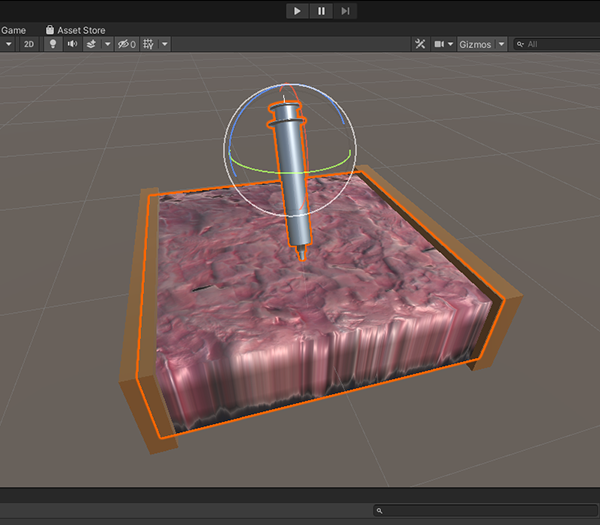iMSTK Is Now Available on the Unity Asset Store

On behalf of the iMSTK community we are pleased to announce that the release of version 1.0 of the iMSTK Unity Asset is now available on the Unity Asset Store. iMSTK is Kitware’s simulation toolkit designed to aid rapid prototyping of interactive multi-modal surgical simulations. iMSTK’s collection of high-performance, interactive physics-based simulation models allow recreation of a wide variety of surgical scenarios in skill and procedural trainer workflows. The iMSTK Unity Asset allows you to easily integrate iMSTK into surgical simulations built in Unity. iMSTK and iMSTK-Unity are open source with an Apache 2.0 license for flexible integration for all users.
The Version 1.0 Release includes:
- iMSTK Version 6.0
- Support to import VTK and other mesh formats (e.g. vtk, vtu, stl, ply, veg, …)
- Deformable & Rigid Body Models to be used in Unity
- Custom Editors for iMSTK Behaviors
- Helper Scripts to create simple dynamic objects
A short video demonstrating the use of the iMSTK Unity Asset is available below.
iMSTK has been integrated into the prototype of a Laparoscopic Cholecystectomy Simulator built in Unity. This simulator also makes use of the Pulse Unity Asset. The Pulse Physiology Engine is an open source computational physiology engine for realistic dynamic patient feedback during medical simulation.
Caption: A laparoscopic grasper manipulating the gallbladder, a reduced Pulse Patient Monitor can be seen on the side
Future Work
- OpenHaptics Unity Asset Support
- Improved Model Components
- Tool Components
- Improved Error Handling
Limitations
The asset currently does not include the iMSTK Openhaptics support. To enable this functionality you will need to build iMSTK from the source.
For more information on our efforts and our users, visit our website or sign up for our discourse/forums. If you are using or would like to use iMSTK, please email us at kitware@kitware.com and we would be happy to discuss your needs and experience.
Acknowledgements
The research reported in this publication was supported, in part, by the following grants from the National Institutes of Health R44DK115332, R44DE027595, R01EB02547, and R01EB031808.